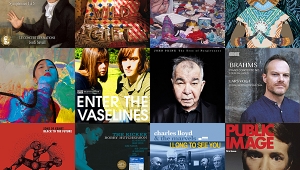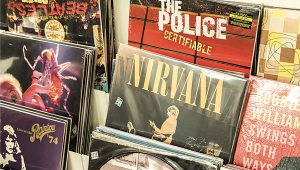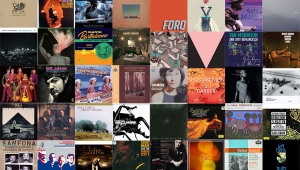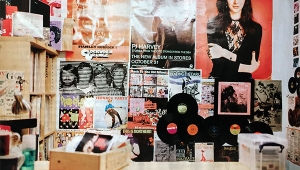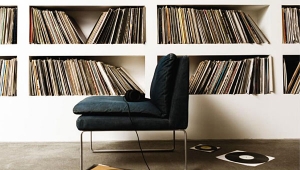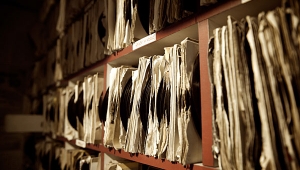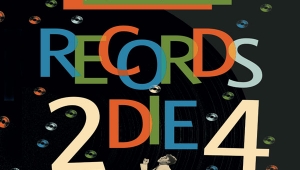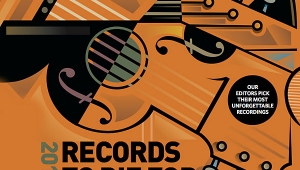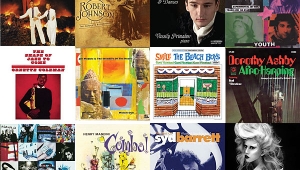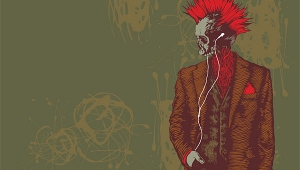| Columns Retired Columns & Blogs |
2007 Records To Die For Page 3
DANIEL BUCKLEY
MARY McCASLIN: Old Friends
Philo 1046 (CD). 1977/1996. Mary McCaslin, Jim Ringer, prods.; Michael Couture, eng. AAD. TT: 35:37
THE LEMONHEADS: Come On Feel the Lemonheads Atlantic 82537-2 (CD). 1993. Evan Dando, prod.; The Robb Bros., prods., engs. AAD? TT: 54:36
FRANK HEWITT: Fresh from the Cooler
Frank Hewitt, piano; Ari Roland, bass; Jimmy Lovelace, drums
Smalls SRCD-0016 (CD). 2006. Luke Kaven, prod., eng. DDD. TT: 64:03
MARIO LANZA: Live from London
Mario Lanza, tenor; Constantine Collinicos, piano
RCA Victor 61884-2 (CD). 1958/1994. Chick Crumpacker, remastering prod.; Dick Baxter, remastering eng. AAD. TT: 55:22
MARY McCASLIN: Old Friends
Philo 1046 (CD). 1977/1996. Mary McCaslin, Jim Ringer, prods.; Michael Couture, eng. AAD. TT: 35:37
In the late 1970s, I walked into a university-area bookstore in Tucson, Arizona, and heard a clawhammer banjo chiming out a catchy melody. The tune was familiar, but I couldn't put my finger on what it was. "Ever since I was a young boy I played the silver ball," a twangy woman's voice intoned. "Holy crap!" I realized. "It's 'Pinball Wizard'!" It was as if I was hearing that anthem of my boyhood for the first time. A serious Who fan, I should have been repulsed. Instead I stood slack-jawed, beaming at the speakers. I bought Mary McCaslin's Old Friends on the strength of that tune, but there was so much more. Her cover of the Motown classic "My World Is Empty Without You Babe" has a matchless pathos, her version of the Beatles' "Things We Said Today" an introspective moodiness that tugged at my heart in ways the original never had. Another Beatles chestnut, "Blackbird," proved the perfect vehicle for McCaslin's buoyant spirit. Awe-inspiring and thoroughly original as these and other covers were, it was her own title tune that ties the disc together like a reunion of the heart. This disc still reminds me that true genius resides in a singular voice illuminating unseen corners of a familiar sonic world.
ARTHUR BLYTHE: Lenox Avenue Breakdown
Arthur Blythe, alto sax; James Newton, flute; Bob Stewart, tuba; James "Blood" Ulmer, guitar; Cecil McBee, bass; Jack DeJohnette, drums; Guillermo Franco, percussion
Koch Jazz KOC-CD-7871 (CD). 1979. Bob Thiele, prod.; Doug Epstein, eng. AAD.? TT: 41:58
To my mind, the late 1970s to early 1980s was a remarkable peak in jazz, with Miles Davis, Ornette Coleman, the Art Ensemble of Chicago, and a plethora of young players pushing the envelope in ways original yet standing on the shoulders of the giants who came before them. Nearly 30 years after it was released, this disc still delivers the booty-shaking Caribbean groove, darkly propulsive currents, and dangerous energy it held for me the first day I peeled off the shrink-wrap. This was Blythe's "mainstream" debut, backed by a band of the greatest improvisers of the day. But there's nothing about the compositions or their performances that's watered-down. Lenox Avenue Breakdown is both a memorable time capsule and a timeless classic every jazz collection requires. (XVIII-2)
JASON COHEN
THE LEMONHEADS: Come On Feel the Lemonheads Atlantic 82537-2 (CD). 1993. Evan Dando, prod.; The Robb Bros., prods., engs. AAD? TT: 54:36
After he was a punk and before he was a punchline, Evan Dando (and his Aussie cowriter Tom Morgan) sure could craft a song: tunefully ascendant electric-guitar bubblegum both snappy and sweet, all with impeccable economy of riffs, rhythm, imagery, and even actual time—most of the best tracks don't last long enough to cook an egg. Punchier and odder than the more fêted It's a Shame About Ray, Come On turned Juliana Hatfield into a cross between Emmylou Harris and Ronnie Spector, put Rick James to poignantly ironic use years before David Chappelle, and just about makes the case for Dando as the grunge era's Harry Nilsson—or at least Pete Ham.
PAVEMENT: Wowee Zowee: Sordid Sentinels Edition
Matador OLE 722 (2 CDs). 1995/2006. Doug Easley, Davis McCain, Mark Venezia, prods., engs.; Bryce Goggins, mix. AAD? TT: 96:39
Call it Pavement's Fables of the Reconstruction (Zowee Wowee?) —an itinerant and murky third album that feels like a rejection of its more structured (and career-enhancing) predecessor. But that's where the R.E.M. analogy stops dead: Wowee Zowee is also Pavement's best, a serpentine and seemingly disparate batch of nimble indie anthems, bratty art-rock clatter, high-desert psychedelia, and slow-drip epic ballads that feels more cohesive with each listen. The brand-new two-disc reissue features a stupefying 32 bonus tracks (live sessions, demos, B-sides, outtakes); it would be worth it for the catchy and acerbic Pacific Trim EP alone.
TOM CONRAD
FRANK HEWITT: Fresh from the Cooler
Frank Hewitt, piano; Ari Roland, bass; Jimmy Lovelace, drums
Smalls SRCD-0016 (CD). 2006. Luke Kaven, prod., eng. DDD. TT: 64:03
Fresh from the Cooler is one of Frank Hewitt's four posthumous releases to date on the Smalls label. The title is a brutal reality check. In his final years, Hewitt often slept in a stripped-out walk-in refrigerator in the back of Smalls, the underground Greenwich Village club for which the label is named. He died unknown in 2002, but his four Smalls recordings prove that he was a major figure, a missing link in the history of jazz piano. His dark notes, like stabs of love and pain embedded in the air, make most jazz pianists sound like Sunday-school teachers.
AMINA FIGAROVA: September Suite
Amina Figarova, piano, composer, arranger; Bart Platteau, flute, B-flat flute, alto flute, bass flute; Nico Schepers, trumpet, flugelhorn; Kurt van Herck, tenor sax; Wiro Mahieu, bass; Chris Strik, drums
Munich 215-2021 (CD). 2005. Amina Figarova, Bart Platteau, prods.; Paul Pouwer, eng. DDD? TT: 61:31
Of the many jazz responses to the events of 9/11, very few have the bare, quiet, devastating emotional impact of September Suite. Amina Figarova was born in Baku, Azerbaijan, lives in Rotterdam, and was visiting friends in Brooklyn on September 11, 2001. She finds in music a way to remember her experience of the unimaginable. Her compositions and her arrangements for only six instruments are a journey of mourning in subtle, nuanced gradations of somber color and breaths of melody. It all rings true, from the despair of "Numb" to the small ray of lyricism whispered by Bart Platteau's flute in "Dawn," an unsentimental acknowledgment that life goes on.
ROBERT DEUTSCH
MARIO LANZA: Live from London
Mario Lanza, tenor; Constantine Collinicos, piano
RCA Victor 61884-2 (CD). 1958/1994. Chick Crumpacker, remastering prod.; Dick Baxter, remastering eng. AAD. TT: 55:22
Mario Lanza was not the most disciplined of singers. He avoided the serious study that would have been required for an operatic career, and did not take good care of his body—but boy, what a voice! Maria Callas said that Lanza's was the most beautiful tenor voice she'd ever heard, and listening to this CD of a concert recorded in Royal Albert Hall in 1958, you might just feel the same. The pieces include operatic arias, songs from his movies, American operetta (a genre in which, in my opinion, he has not been equaled), and Neapolitan songs, delivered with his trademark intensity that some have criticized as being over the top—but it's never boring. Singing with great beauty and power, Lanza sounds as if he's having the time of his life, and the audience obviously loves him. The sound has the characteristics of a live recording, with occasional unexplained thumps, but it all just adds to the reality of the experience.
GEORGE LONDON: Spirituals
George London, bass-baritone; Carl Michaelski, Orchestra of the Bavarian State Radio; Singgemeinschaft Rudolf Lamy; Eugen Cymbalistij, chorusmaster
Deutsche Grammophon 00289 477 6193 (CD). 2006. Heinz Wildhagen, eng. AAD. TT: 40:14
George London had one of the greatest bass-baritone voices of the 20th century—a voice of uniquely beautiful timbre, on the bass end of the spectrum in weight, but with the easy, powerful top of a Verdi baritone. This recording of spirituals was made in 1963, but was not released at that time because London was not entirely happy with the arrangements, and would have preferred to do these songs with simple piano accompaniment. Deutsche Grammophon's justification for releasing it in 2006, nearly 20 years after London's death, is that it is "an important document, the only surviving record of London's close engagement with this archetypal form of American music."
I had initial reservations about the ethics of a record company going against the express wishes of an artist, but, having listened to the CD, I had to agree that this recording needs to be heard. London is in fabulous voice, and sings with great musicality and emotional involvement. I can't imagine anyone listening to him sing "Swing Low, Sweet Chariot" without being moved. And while the arrangements are indeed a bit hokey—with a chorus sometimes going "Oooh" and "Aaah" in the background—this is not enough to interfere with London's artistry. A nice, spacious sound, with good focus on the voice.
- Log in or register to post comments

